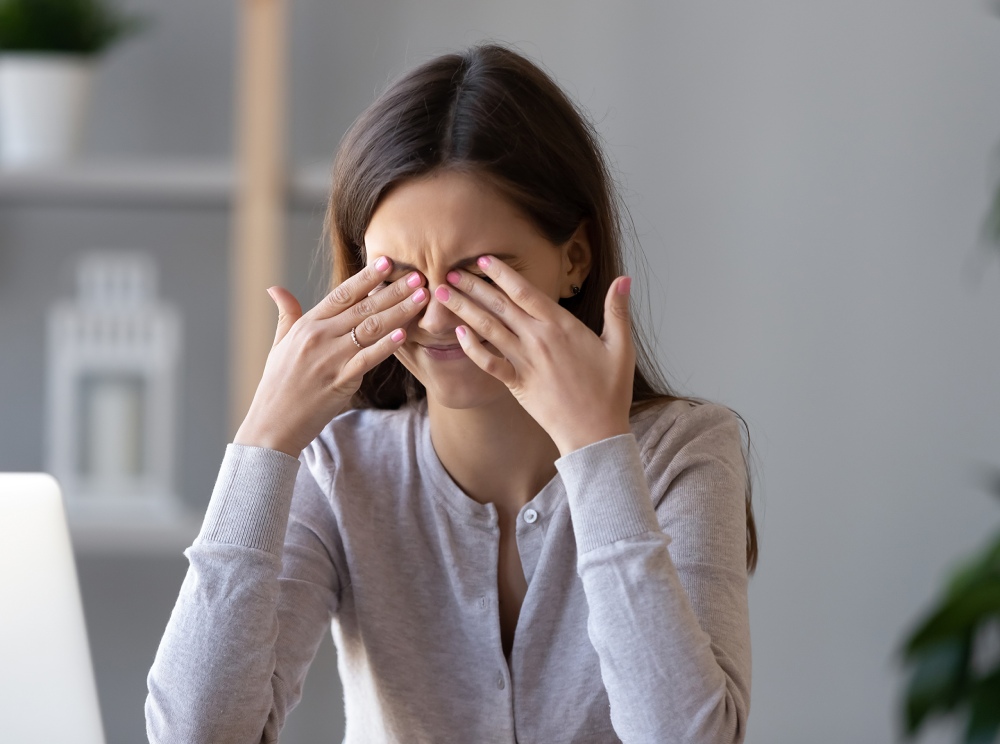Imagine this: you’re going about your day, and suddenly your eyes start feeling dry, gritty, and uncomfortable. It’s a familiar sensation for many, and it may have you wondering if dry eye will go away on its own. In this blog, we’ll answer this question and share tips for effectively managing your dry eye symptoms.
Understanding dry eye
Dry eye, or dry eye syndrome, happens when your eyes can no longer produce enough tears or when those tears evaporate too quickly. Dry eye is typically a chronic condition, meaning it doesn’t usually resolve on its own. However, some people may find that their symptoms improve over time without treatment. This may be the case if your dry eye is caused by temporary factors, such as seasonal allergies, exposure to dry air, or certain medications. Once the underlying cause is addressed, your eyes may start producing enough tears again, and your symptoms may improve.
Mild or moderate dry eye
If you have mild or moderate dry eye, your symptoms may improve with a few simple lifestyle changes. For example, you might try using artificial tears to lubricate your eyes and reduce irritation. You can find these drops over the counter at your local pharmacy, and they’re usually safe to use as often as you need to.
Additionally, you can try avoiding air conditioning or fans, which can dry out your eyes, and taking breaks from staring at screens for long periods. It’s also important to get enough sleep, stay hydrated, and eat a balanced diet high in omega-3 fatty acids. Even if your dry eye doesn’t completely go away, you can still manage your symptoms effectively by following these tips.
Severe dry eye
For people with severe or persistent dry eye, it’s important to seek treatment from an eye doctor. Untreated dry eye can lead to more serious complications over time such as corneal damage and eye infections. Your eye doctor can help you find the most effective treatment for your needs and help monitor your symptoms over time.
Treatment for dry eye
The good news is that there are many treatment options available to help you find relief and improve your eye comfort. Your eye doctor may recommend:
- Artificial tears: Lubricating eye drops can provide temporary relief by mimicking natural tears and moistening the eyes.
- Prescription medications: In some cases, your eye doctor may prescribe medications such as anti-inflammatory eye drops or medications that stimulate tear production.
- Lifestyle changes: Making small changes in your daily routine, like taking breaks from screens, using a humidifier, or wearing sunglasses outdoors, can help reduce or prevent dry eye symptoms.
- Nutritional supplements: Certain supplements, like omega-3 fatty acids, may improve tear quality and reduce inflammation.
- Advanced treatments: In severe cases, your eye doctor may suggest procedures like punctal plugs (tiny plugs inserted into tear ducts) or meibomian gland expression.
In conclusion, dry eye is a chronic condition that typically doesn’t go away on its own. However, with proper treatment and management, most people can find relief from their symptoms.
If you’re experiencing dry eye symptoms, make an appointment with our eye doctor to discuss your treatment options and find the right solution for your needs.




